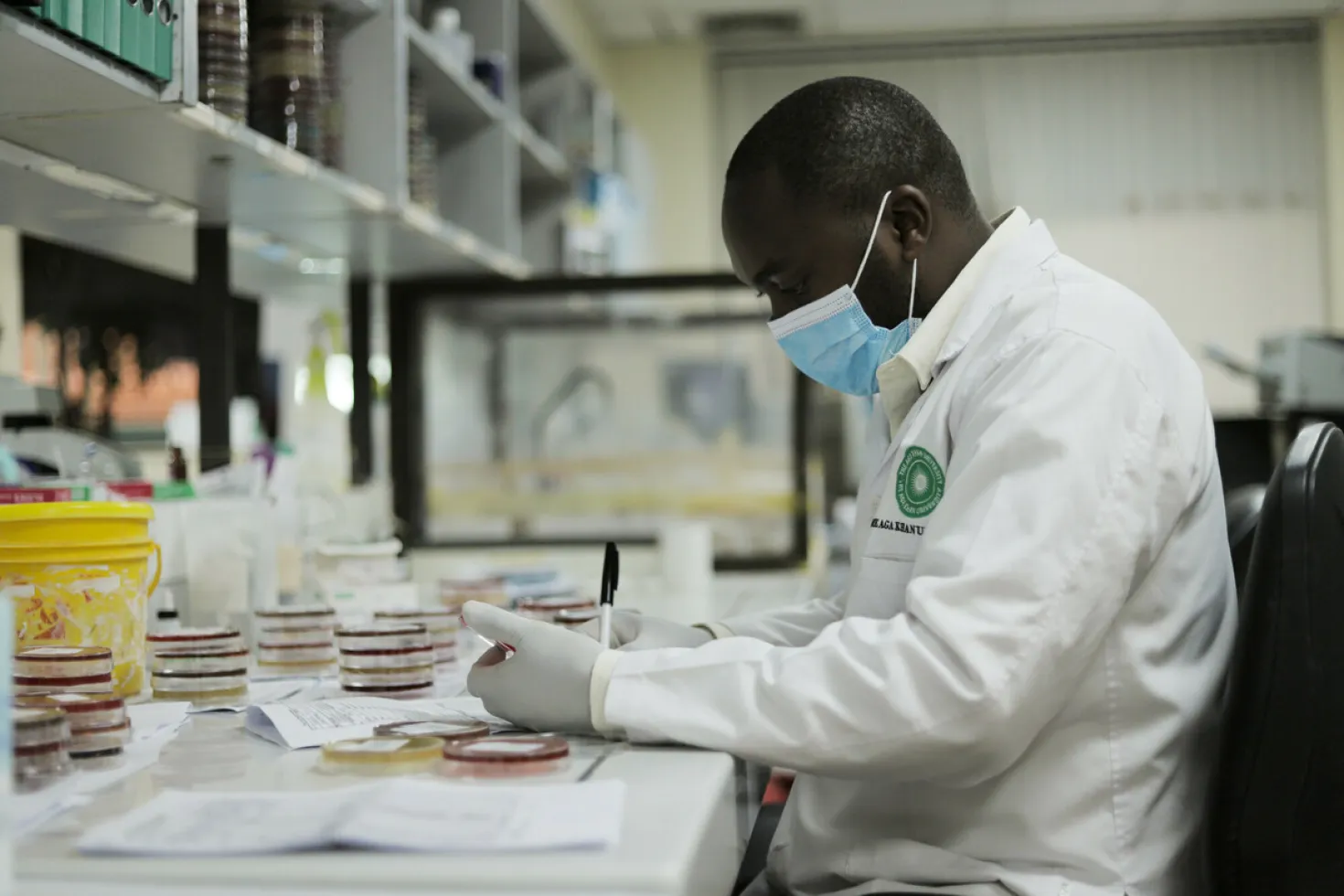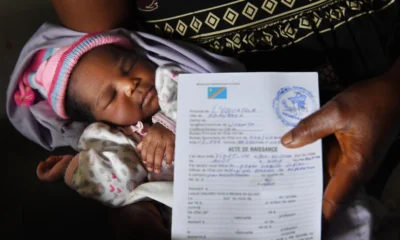NEWS
Federal Government strengthens cancer control initiatives

In the face of an increasing cancer burden—nearly 288,000 cases have been reported nationally—the Federal Government of Nigeria has reiterated its commitment to enhancing cancer control initiatives.
Dr. Tunji Alausa, the Minister of State for Health, underlined the importance of an improved cancer management system during the Impact Review Mission Team’s visit to Nigeria. She pointed out significant gaps in the availability of treatment and diagnostic resources.
With a renewed emphasis, the government hopes to close these disparities by funding healthcare reform initiatives and forming strategic alliances.
Dr. Alausa acknowledged the contribution of foreign health organizations to the advancement of Nigeria’s cancer control initiatives and expressed gratitude for their support.
He emphasized President Bola Ahmed Tinubu’s commitment to healthcare reforms and said the Federal Government has given the health sector top priority when it comes to investing.
“The President has demonstrated a significant commitment to ensuring that all Nigerians receive adequate healthcare,” he said.
Nigeria’s cancer care system has many obstacles, especially with regard to the availability of facilities for diagnosis and treatment.
“There is only one positron emission tomography (PET) scanner for a country of over 220 million people, and the country lacks cyclotrons for isotope production,” Alausa noted. Moreover, there are very few linear accelerators in Nigeria, despite the fact that they are crucial for advanced cancer treatment.
The National Institute of Cancer Research and Therapy (NICRAT), which will act as a cornerstone for research, prevention, and therapy, is one of the strategic objectives the minister outlined to close these gaps.
“Plans are also in place to construct six new cancer treatment centres across Nigeria’s geopolitical zones, along with nine diagnostic centres to improve access to care.”
Alausa stressed how critical it is to strengthen Nigeria’s medical personnel, with a focus on nuclear medicine and interventional radiology specialists in particular.
“We are committed to strengthening our capacities and addressing the unique cancer types prevalent in Nigeria through comprehensive research and treatment.
“We have commissioned a postgraduate training institution to ensure that healthcare professionals are equipped with the necessary skills to tackle cancer effectively.
“We are focusing on nuclear medicine and interventional radiology,” he said.
The Nigerian government is obtaining cutting-edge technologies for cancer therapy through partnerships with global institutions including the World Health Organization (WHO) and the International Atomic Energy Agency (IAEA).
Through these relationships, Nigeria now has access to nivolumab and other monoclonal antibody treatments, which are essential for treating metastatic malignancies.
The government has launched a digital network that offers real-time information on accredited cancer treatment facilities around the nation in an effort to streamline cancer care.
By providing a list of approved oncologists and hospitals, this platform seeks to increase access to care.
Alausa also emphasized recent advancements in the fight against cancer, namely concerning the Human Papillomavirus (HPV) vaccine and cervical cancer screening.
Nigeria boasts one of the highest immunization rates in the world, at 85%, which is anticipated to considerably lower the country’s long-term cancer burden.
In order to inform future policy decisions, the Impact Review Mission, led by the IAEA, is evaluating Nigeria’s efforts to control cancer. The mission will produce evidence-based recommendations.
IAEA representative Ms. Ilaura Haskins announced that the organization held a formal opening ceremony to officially launch its in-country mission for Nigeria’s impact review on cancer control.
She praised the government’s efforts to bolster cancer control initiatives and noted the notable advancements since the last impact study in 2011.
“The goal of the impact review is to conduct a comprehensive analysis of the current situation regarding cancer control in Nigeria, assessing the country’s capacities and needs,” she stated.
She claims that the World Health Organization (WHO), the International Agency for Research on Cancer (IARC), and the IAEA are working together to accomplish the purpose.
The entire spectrum of cancer control—prevention, early detection, diagnosis, treatment, and palliative care—will be included in the mission report to make sure Nigeria’s cancer care system develops in line with international best practices.



























